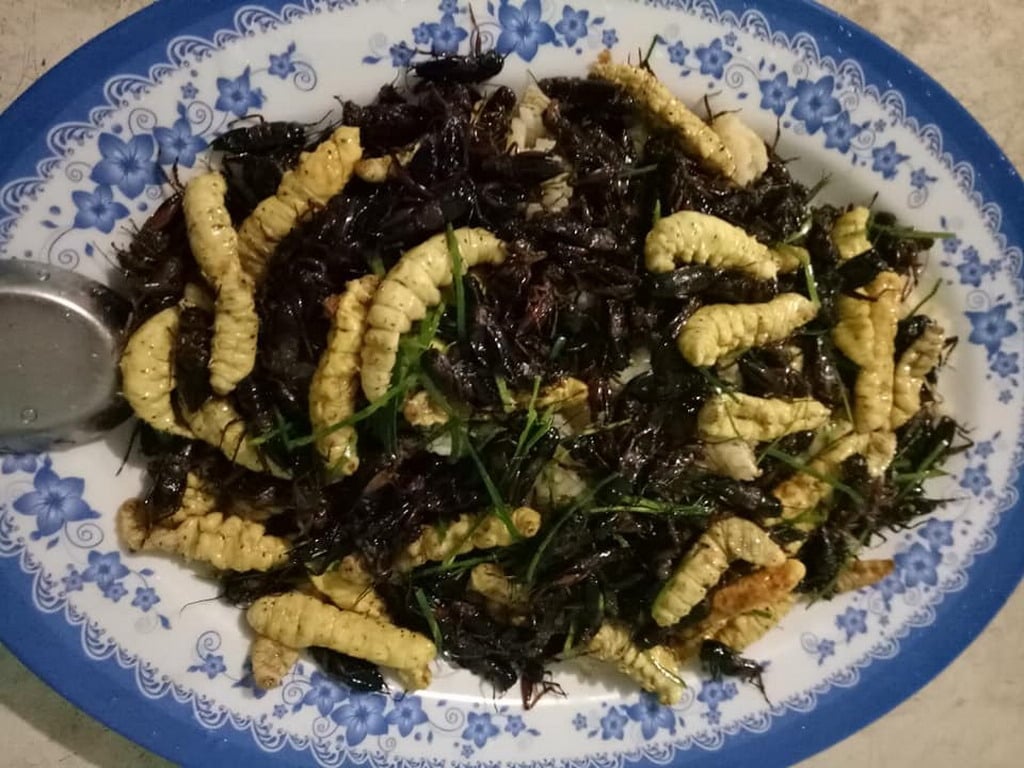Reuters on September 17 quoted a study by the Johns Hopkins Center for a Livable Future (USA) showing that eating insects, small fish and mollusks has less impact on the environment than a vegetarian diet, while being more nutritious.
Scientists found that a diet that includes only one meal a day of meat, fish, and dairy products would contribute less to climate change and water consumption than a diet that includes only eggs and dairy.
This is because raising cows for milk, butter and cheese requires a lot of land, energy, pesticides, herbicides and produces greenhouse gases that cause global warming.
The study looked at freshwater use and greenhouse gas emissions from nine different diets across 140 countries and territories. These diets ranged from one meat-free day per week, or no red meat, to no land-based meat and plant-based diets.
 Insect food is nutritious and good for the environment. Nguyen Van Tam |
Another study published in July found that eating ants, grasshoppers and silkworms could help fight cancer. Tests showed that these insects are rich in antioxidants, with some containing five times more antioxidants than orange juice.
Many scientists and activists have long called for a shift to a plant-based diet to curb climate change and reduce deforestation, as red meat production requires a lot of land for pasture and feed. Agriculture , forestry and other land use activities accounted for nearly a quarter of human-caused greenhouse gas emissions from 2007 to 2016, according to a report last month by the United Nations Scientific Committee.
[ VIDEO ] When insects are the future culinary trend |
However, according to associate professor Keeve Nachman at Johns Hopkins University who led the research team, there is no standard model that is suitable for everyone.
In low- and middle-income countries like Indonesia, people need to eat more animal protein to get adequate nutrition.
The study concluded that greenhouse gas and water use in poor countries could be increased to reduce hunger and malnutrition, while high-income countries should reduce consumption of meat, eggs and dairy products.
On average, raising and processing beef causes 115 times more greenhouse gas emissions than nuts and 40 times more than soybeans, the study noted.
Source: https://thanhnien.vn/an-con-trung-tot-cho-moi-truong-hon-an-chay-dung-san-pham-tu-sua-185884422.htm


































































































Comment (0)